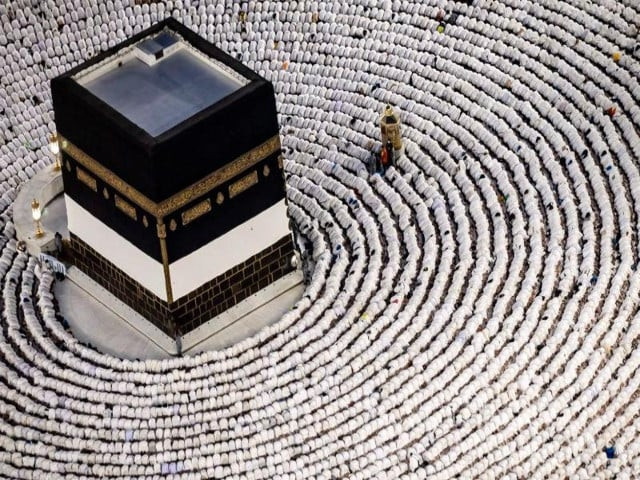Millions converge on Mina as Hajj begins
King Salman issued a decree to host 1,000 pilgrims from families of martyrs from the Gaza Strip

Millions of pilgrims from across the world, including at least 160,000 Pakistanis, converged on a vast tent city of Mina in the desert outside the holy city of Makkah on Friday, marking the beginning of the annual Hajj.
The Hajj, one of the world’s largest religious gatherings, involves a series of rituals in Makkah and its surroundings that take several days to complete. One of the five pillars of Islam, it must be performed at least once by all Muslims who have the means to do so.
The pilgrims were to spend the night in the Mina.
Valley before moving in the morning to the plains of Arafat for the Hajj climax, the Waqoof, and listen to the Hajj sermon to be delivered from Namara Mosque. The sermon would be translated in 50 languages and relayed to 1 billion listeners worldwide.
After Saturday’s (today) stay in Arafat, the pilgrims would travel to Muzdalifa to collect pebbles that they would use in the symbolic stoning of devil back in Mina. Pilgrims would then return for sacrificing animal. After which they would remove Ihram.
The Hajj this year comes against the grim backdrop of the Gaza war and in exhausting summer heat. Saudi King Salman issued a decree on Monday to host 1,000 pilgrims “from the families of martyrs and the wounded from the Gaza Strip”, bringing to 2,000 the number of Palestinian pilgrims.
About 1.5 million had arrived by late on Monday for this year’s Hajj, official media said. The gathering falls this year during the hot Saudi summer, with officials predicting average highs of 44°Celsius. Mitigation measures this year include misting systems and heat-reflective road coverings.
A text message sent to pilgrims by the authorities on Thursday instructed them to “drink water regularly, more than 2 litres daily” and to “always carry an umbrella”, warning that temperatures could climb to 48°Celsius



















COMMENTS
Comments are moderated and generally will be posted if they are on-topic and not abusive.
For more information, please see our Comments FAQ